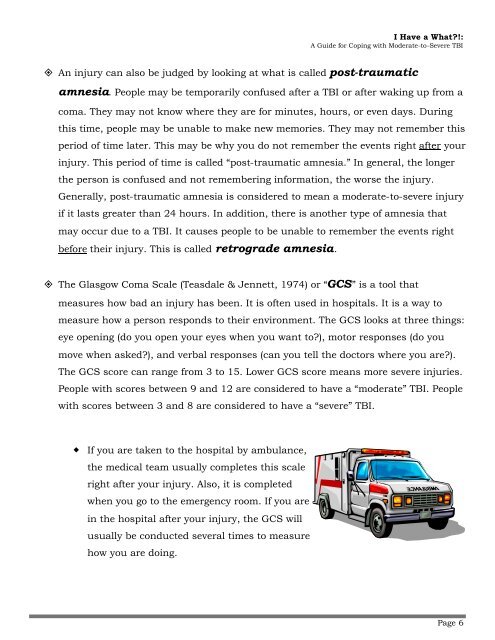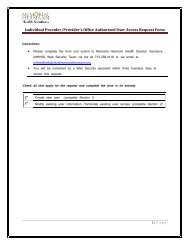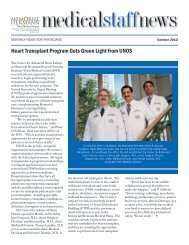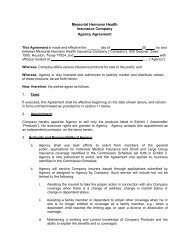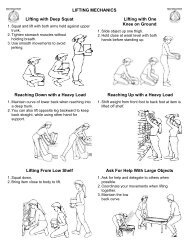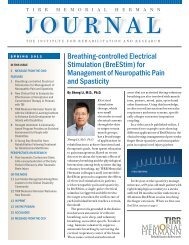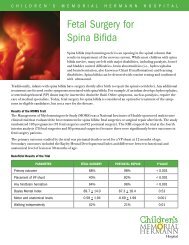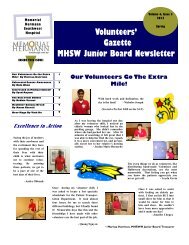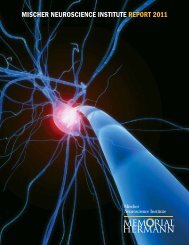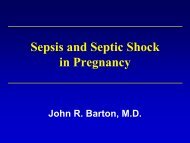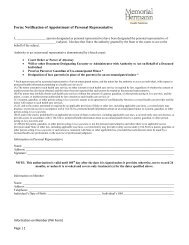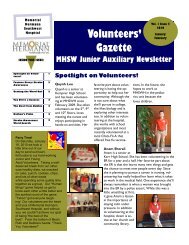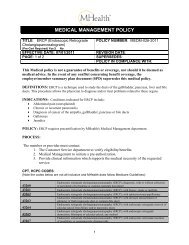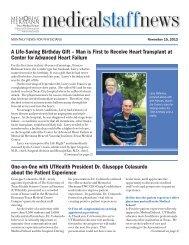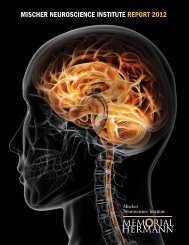I Have a What? A Guide for Coping with Moderate-to-Severe TBI
I Have a What? A Guide for Coping with Moderate-to-Severe TBI
I Have a What? A Guide for Coping with Moderate-to-Severe TBI
- No tags were found...
Create successful ePaper yourself
Turn your PDF publications into a flip-book with our unique Google optimized e-Paper software.
I <strong>Have</strong> a <strong>What</strong>?!:A <strong>Guide</strong> <strong>for</strong> <strong>Coping</strong> <strong>with</strong> <strong>Moderate</strong>-<strong>to</strong>-<strong>Severe</strong> <strong>TBI</strong>An injury can also be judged by looking at what is called post-traumaticamnesia. People may be temporarily confused after a <strong>TBI</strong> or after waking up from acoma. They may not know where they are <strong>for</strong> minutes, hours, or even days. Duringthis time, people may be unable <strong>to</strong> make new memories. They may not remember thisperiod of time later. This may be why you do not remember the events right after yourinjury. This period of time is called “post-traumatic amnesia.” In general, the longerthe person is confused and not remembering in<strong>for</strong>mation, the worse the injury.Generally, post-traumatic amnesia is considered <strong>to</strong> mean a moderate-<strong>to</strong>-severe injuryif it lasts greater than 24 hours. In addition, there is another type of amnesia thatmay occur due <strong>to</strong> a <strong>TBI</strong>. It causes people <strong>to</strong> be unable <strong>to</strong> remember the events rightbe<strong>for</strong>e their injury. This is called retrograde amnesia.The Glasgow Coma Scale (Teasdale & Jennett, 1974) or “GCS” is a <strong>to</strong>ol thatmeasures how bad an injury has been. It is often used in hospitals. It is a way <strong>to</strong>measure how a person responds <strong>to</strong> their environment. The GCS looks at three things:eye opening (do you open your eyes when you want <strong>to</strong>?), mo<strong>to</strong>r responses (do youmove when asked?), and verbal responses (can you tell the doc<strong>to</strong>rs where you are?).The GCS score can range from 3 <strong>to</strong> 15. Lower GCS score means more severe injuries.People <strong>with</strong> scores between 9 and 12 are considered <strong>to</strong> have a “moderate” <strong>TBI</strong>. People<strong>with</strong> scores between 3 and 8 are considered <strong>to</strong> have a “severe” <strong>TBI</strong>.If you are taken <strong>to</strong> the hospital by ambulance,the medical team usually completes this scaleright after your injury. Also, it is completedwhen you go <strong>to</strong> the emergency room. If you arein the hospital after your injury, the GCS willusually be conducted several times <strong>to</strong> measurehow you are doing.Page 6


